Chukka Caribbean Adventures, with its stunning white sand beaches, turquoise waters, and rich biodiversity, represents a dream destination for many travelers. At the heart of this enchanting region, one company stands out for its commitment to sustainable tourism and customer experience: Chukka Caribbean Adventures.
Recently, Chukka was honored as the “World’s Leading Destination Experiences 2024” at the 31st World Travel Awards, celebrating its role as a leader in the adventure tourism industry. This article explores the impact of Chukka Caribbean Adventures on the tourism sector, its innovative approach, and the reasons it has become a benchmark in tourist experiences.
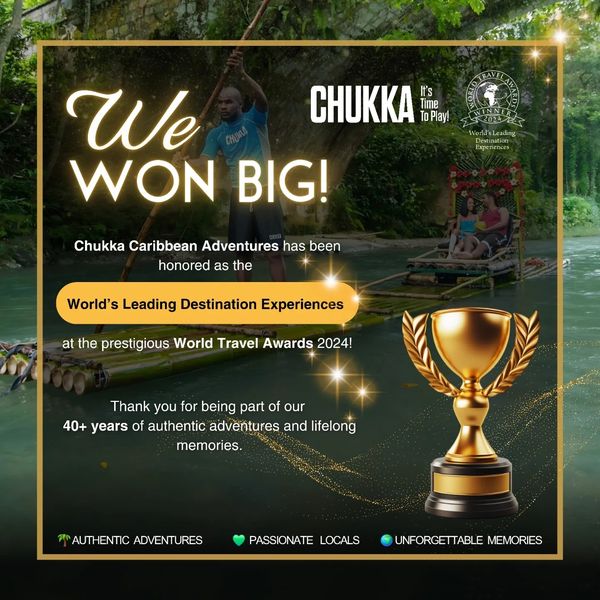
A Commitment to Sustainable Tourism
Chukka Caribbean Adventures was founded to provide authentic experiences while preserving the environment and supporting local communities. The company is devoted to protecting the fragile ecosystems of the Caribbean by integrating sustainable practices into every aspect of its operations. This includes using eco-friendly materials, reducing waste, and raising customer awareness about the importance of conservation.
Marc Melville, the CEO of Chukka, stated: “Our mission is to create extraordinary experiences that reflect the beauty and culture of the Caribbean while respecting our environment.” This commitment to sustainability has allowed Chukka to stand out in an increasingly competitive sector, where travelers seek options that positively impact the communities they visit.
Diverse and Immersive Experiences
Chukka Caribbean Adventures offers a wide range of activities that go beyond simple tourist excursions. Whether outdoor adventures, cultural immersions, or adrenaline-pumping activities, each experience is designed to foster a deep connection with the environment and local communities.
Eco-Adventures
The eco-adventures offered by Chukka allow travelers to discover the unique biodiversity of the Caribbean. From kayaking through mangroves to hiking in tropical forests, each activity is guided by experts who share their knowledge of local wildlife and flora. These educational experiences enable visitors to understand the importance of preserving these ecosystems and encourage responsible tourism practices.
Cultural Immersions
The cultural aspect of Chukka’s offerings is equally enriching. Visitors can participate in artisanal workshops, explore local cuisine, or attend traditional music and dance performances. These immersions not only entertain; they also support local artisans and artists, creating a virtuous cycle where tourism directly benefits communities.
Thrilling Activities
For thrill-seekers, Chukka Caribbean Adventures offers exhilarating activities such as zip-lining, rafting, and scuba diving. These experiences are designed to provide an adrenaline rush while adhering to the strictest safety standards. By integrating these activities into a sustainable framework, Chukka ensures that visitors can enjoy adventure without compromising environmental integrity.
The Impact of the World Travel Awards
Receiving the title of “World’s Leading Destination Experiences 2024” at the World Travel Awards is a significant achievement for Chukka Caribbean Adventures. These awards, often compared to the “Oscars of Travel,” recognize leaders who innovate and drive excellence in the tourism sector. This distinction shines a light not only on the hard work of the Chukka team but also on the growing importance of sustainable tourism globally.
A Well-Deserved Recognition
This recognition crowns over 40 years of experience in the adventure tourism sector. Since its inception in 1983, Chukka has adapted to market changes and consumer expectations while remaining true to its core values. The company’s ability to innovate while preserving its commitment to sustainability is what places it at the forefront of the industry.
In summary, Chukka Caribbean Adventures is more than just a tourism company; it is a model of success in the field of sustainable tourism. Through its commitment to environmental protection and support for local communities, Chukka offers experiences that leave a positive footprint on travelers and the Caribbean region.
By winning the title of “World’s Leading Destination Experiences 2024,” Chukka confirms its status as a leader in the tourism industry and inspires other companies to follow its example.
For travelers seeking unique and responsible adventures, Chukka Caribbean Adventures represents an essential option. Whether you’re looking for cultural immersion, an escape into nature, or an adrenaline rush, Chukka invites you to discover the best of the Caribbean while respecting the environment and supporting local communities.
The Roots of Caribbean Intangible Heritage (2008-2013)
From 2008 to 2011, several Caribbean cultural elements were recognized as intangible cultural heritage by UNESCO. This recognition emphasized the region’s rich traditions, many of which are a testament to its diverse history, from indigenous customs to the impact of African, European, and other influences.
2008
Nicaragua: El Güegüense
One of the oldest theatrical performances in the Americas, El Güegüense is a satirical drama that blends indigenous and colonial Spanish elements. It reflects Nicaraguan resistance to colonial rule and is celebrated for its witty dialogue, vibrant costumes, and musical accompaniment.Dominican Republic: The Fraternity of the Holy Spirit of Villa Mella
This religious brotherhood maintains African cultural practices in the Dominican Republic through its vibrant processions and rituals. The Fraternity’s performances of sacred music and the use of traditional instruments, such as the congos, are vital to the preservation of African cultural identity in the Caribbean.Colombia: Palenque de San Basilio
Recognized as the first free town of enslaved Africans in the Americas, San Basilio preserves its unique language, customs, and traditions. Its residents have managed to keep their African roots alive, making it a significant cultural and historical site in Colombia.Belize, Guatemala, Honduras, Nicaragua: Garifuna Language, Dance, and Music
The Garifuna people, descendants of indigenous Carib and Arawak populations mixed with Africans, have a rich cultural tradition. Their language, music, and dance embody their struggles and resilience, especially their punta music, a vibrant expression of their identity.
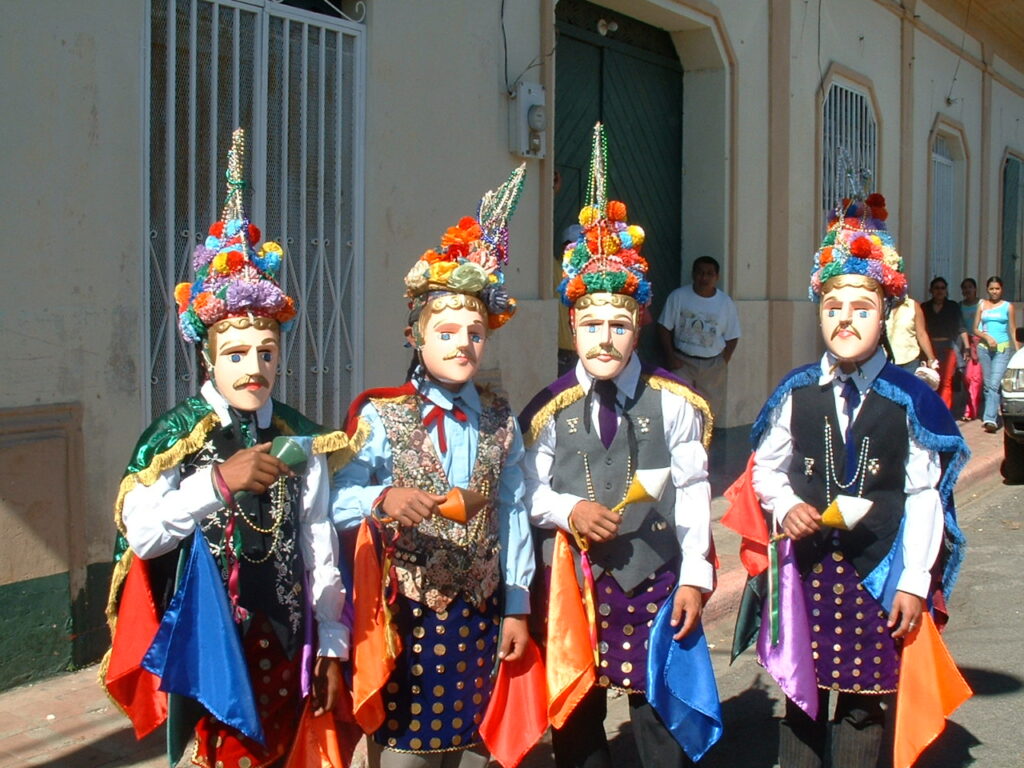
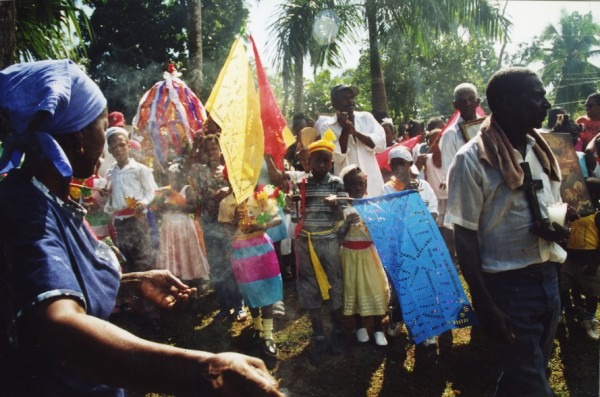
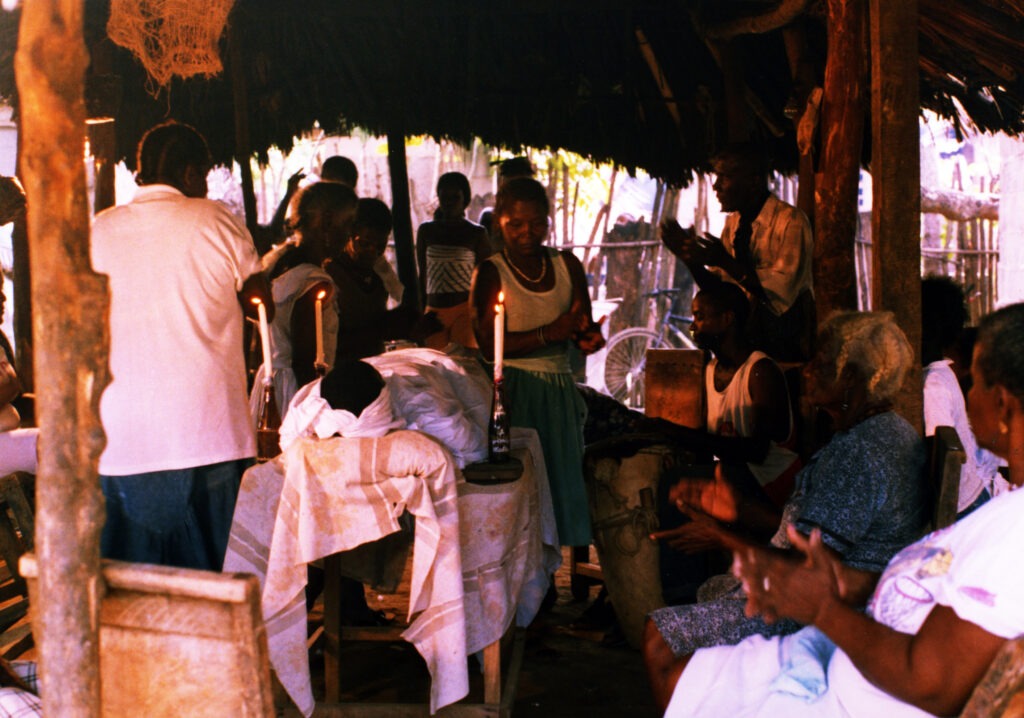
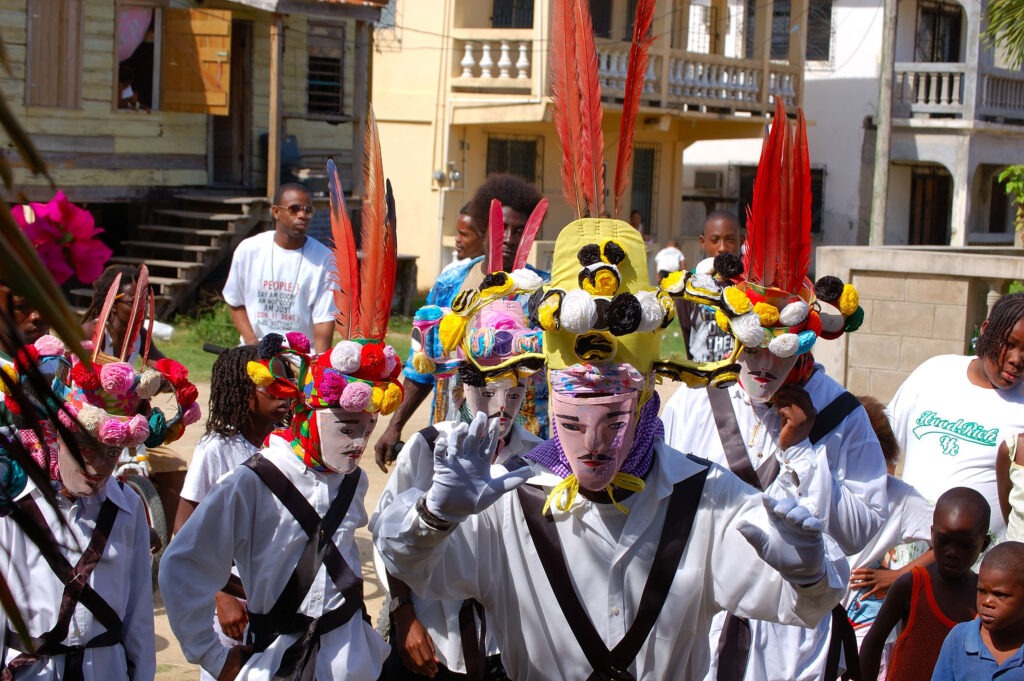
Dominican Republic: Cocolo Dance Theatre
The Cocolo dance theatre tradition originated among the descendants of British Caribbean slaves in the mid-19th century. This vibrant cultural expression blends African and European elements and is celebrated through annual performances during Christmas and Carnival.Guatemala: The Rabinal Achí Dance Theatre Tradition
The Rabinal Achí is a 15th-century Maya dynastic drama that reflects pre-Hispanic traditions and is presented through masked dances and theatrical performances. Danced annually on January 25th for Saint Paul, it connects the living with their ancestors, emphasizing cultural heritage and continuity.Cuba: The Tumba Francesa Dance Tradition
The Tumba Francesa, meaning “French drum,” is a dance, song, and drumming style imported to Cuba by Haitian slaves in the 1790s and reflects the Afro-Haitian heritage of the Oriente province. It is characterized by a fusion of Dahomey music from West Africa and traditional French dances, featuring vibrant performances led by a singer and accompanied by distinct hand-played drums and dancers in colonial-style dresses.Colombia: The Barranquilla Carnival
The Barranquilla Carnival, celebrated annually for four days before Lent, features a vibrant mix of dances and music from various Colombian cultures, reflecting the city’s rich heritage. This fusion of indigenous, European, and African traditions is showcased through lively performances, colorful costumes, and satirical songs that engage the community and celebrate contemporary life..
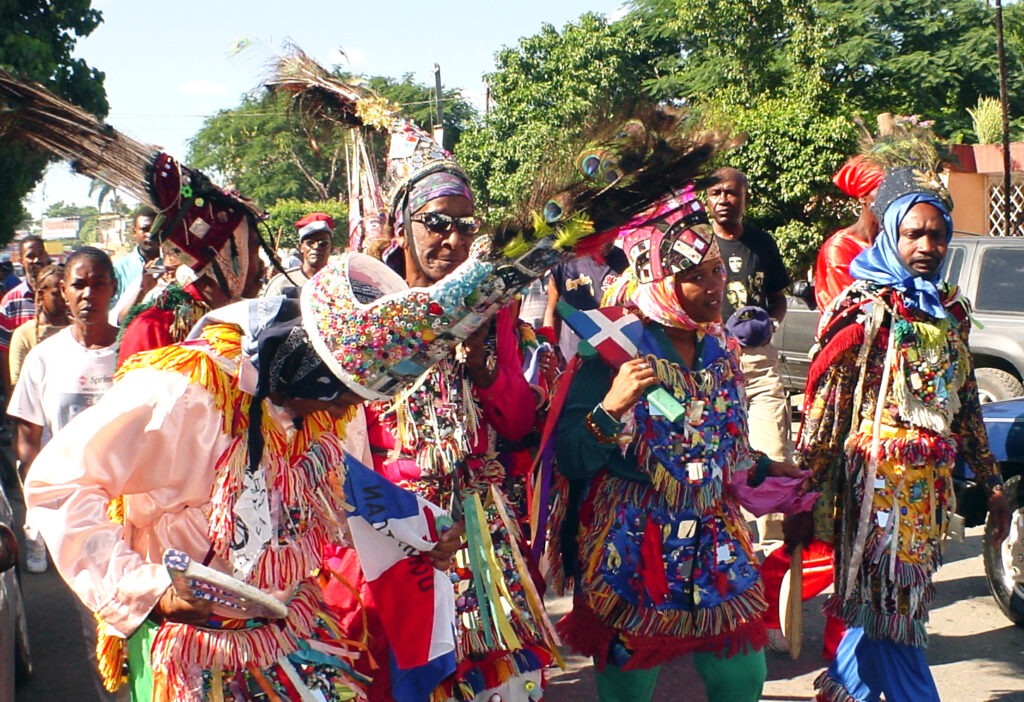
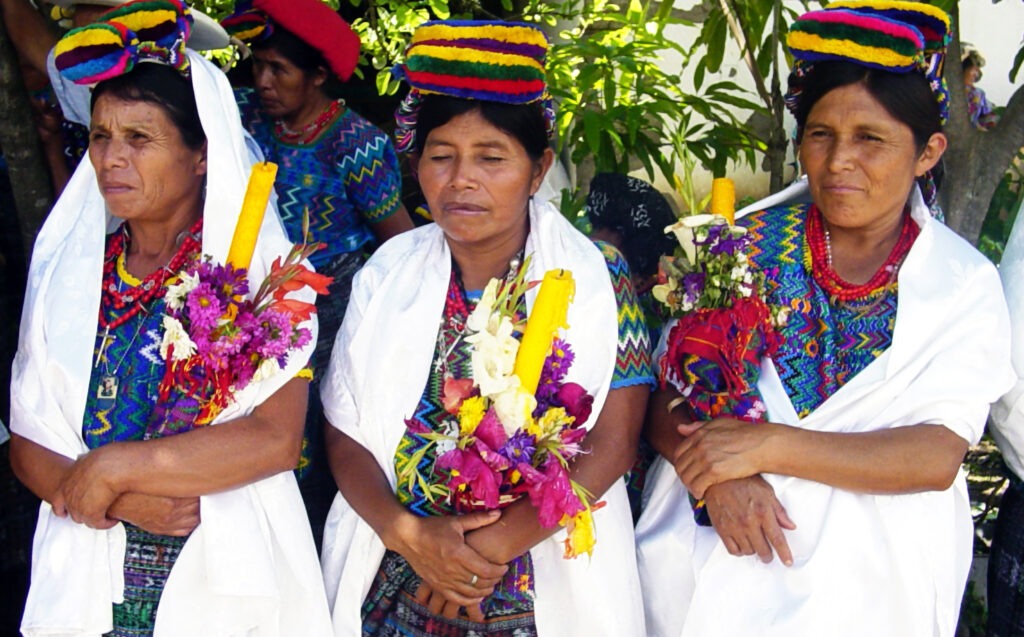
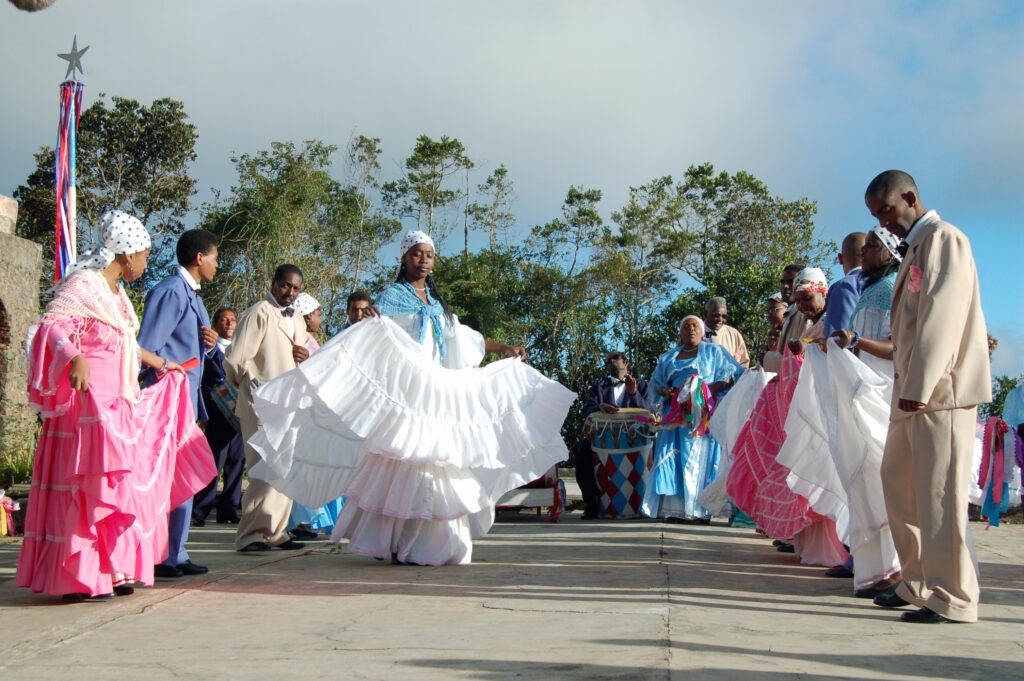
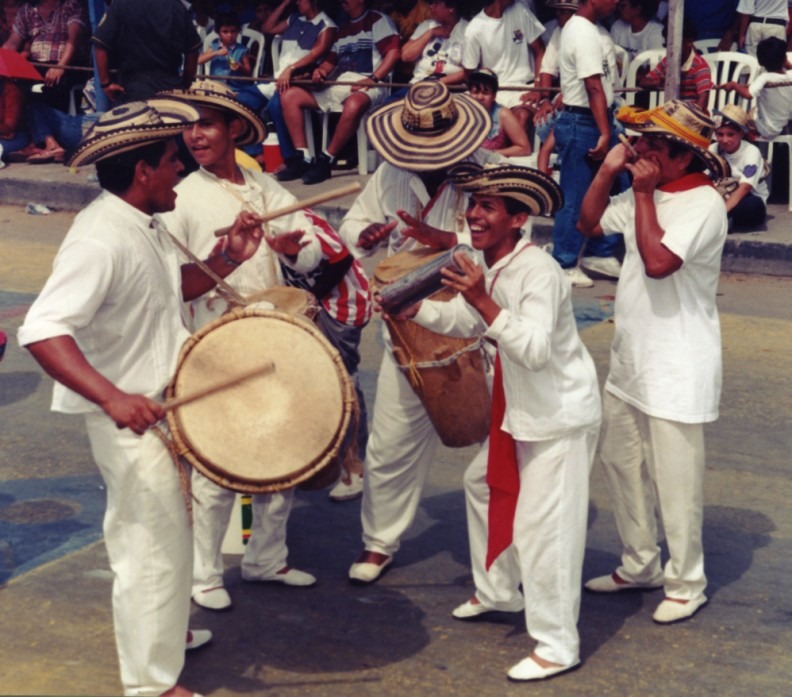
Mexico: Indigenous Festivals Dedicated to the Dead
El Día de los Muertos (Day of the Dead) is celebrated by indigenous communities in Mexico as a way to honor the temporary return of deceased loved ones, with festivities occurring from late October to early November. Families prepare altars with offerings and favorite foods of the departed, reflecting a blend of pre-Hispanic and Catholic traditions that strengthens community ties and cultural identity.Jamaica: The Traditions of the Maroons of Moore Town
The Maroons of Moore Town, descendants of escaped enslaved Africans, have preserved a unique cultural heritage that includes the Kromanti Play, a blend of African traditions expressed through dance, music, and rituals honoring their ancestors. Despite facing opposition from missionaries and economic challenges, these traditions remain central to the identity and resilience of the Maroon community.Costa Rica: Pastoral Traditions and Ox-Carts
The traditional ox-cart, known as the carreta, is a celebrated symbol of Costa Rican culture, originally used to transport coffee and adorned with vibrant regional designs. Despite their decline in practical use, these intricately decorated carts remain a cherished representation of the country’s rural heritage and are featured prominently in festivals and parades.
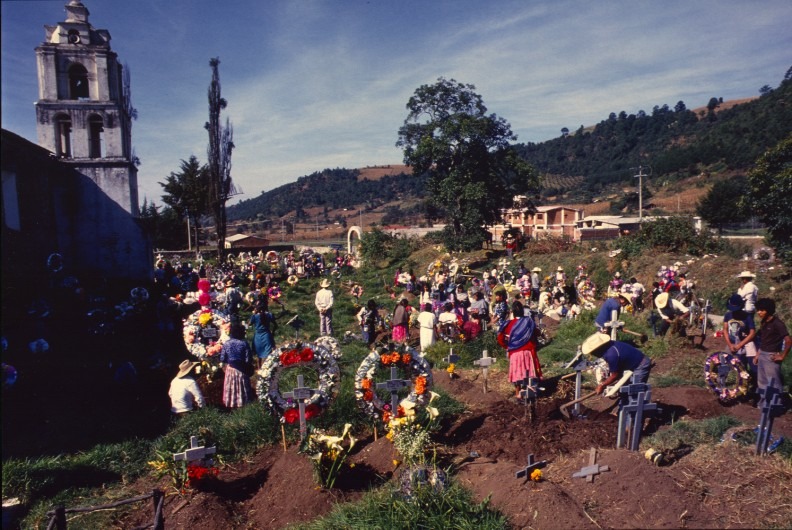
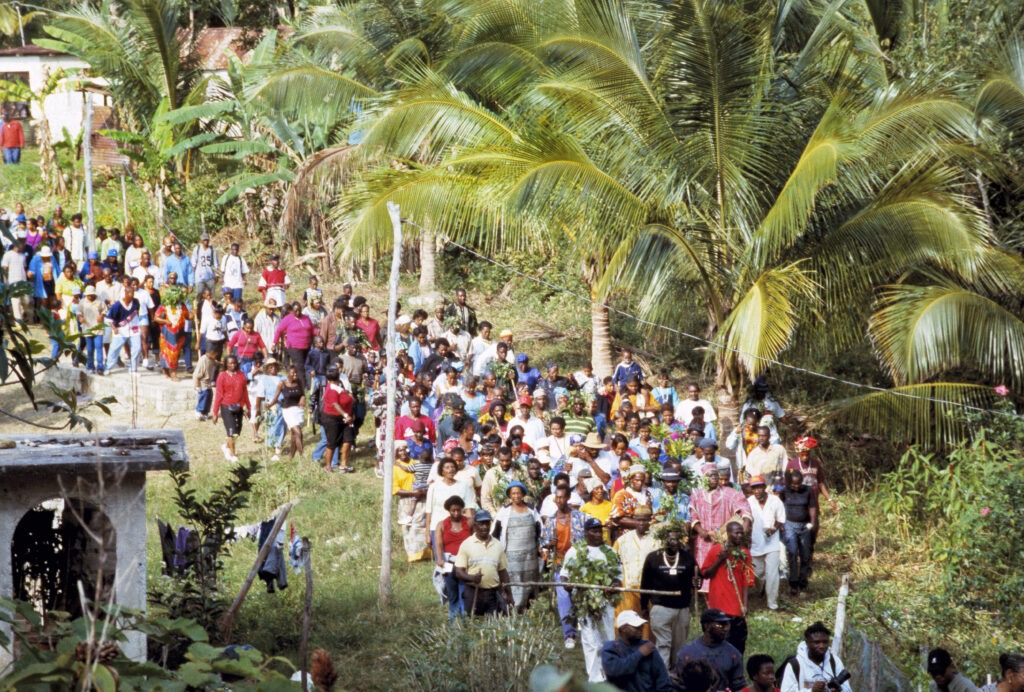
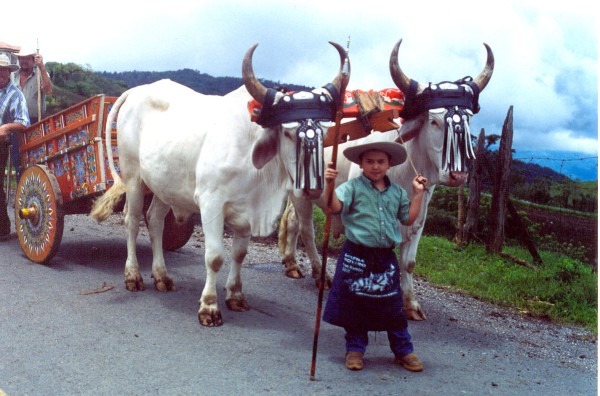
2009
Colombia: Carnaval de Negros y Blancos
Celebrated in the city of Pasto, this carnival brings together people of different ethnicities to celebrate cultural diversity. It symbolizes the unity of all races and features colorful parades, elaborate costumes, and traditional dances.Colombia: Processions of the Holy Week in Popayán
One of the oldest religious traditions in Latin America, these processions are marked by reverence and devotion. Participants carry religious icons through the streets, maintaining a solemn atmosphere as the community honors their faith.Mexico: Ceremony of the Voladores
This ancient Mesoamerican ritual involves performers climbing a tall pole and spinning towards the ground, mimicking the descent of birds. It is a spiritual act meant to honor the gods and seek blessings for fertility and a good harvest.
- Mexico: Otomí-Chichimeca Heritage
The Otomí-Chichimeca people of Querétaro honor their connection to the land through annual pilgrimages to sacred sites like Peña de Bernal, praying for water and ancestral blessings. Their vibrant traditions and rituals are essential to their cultural identity.
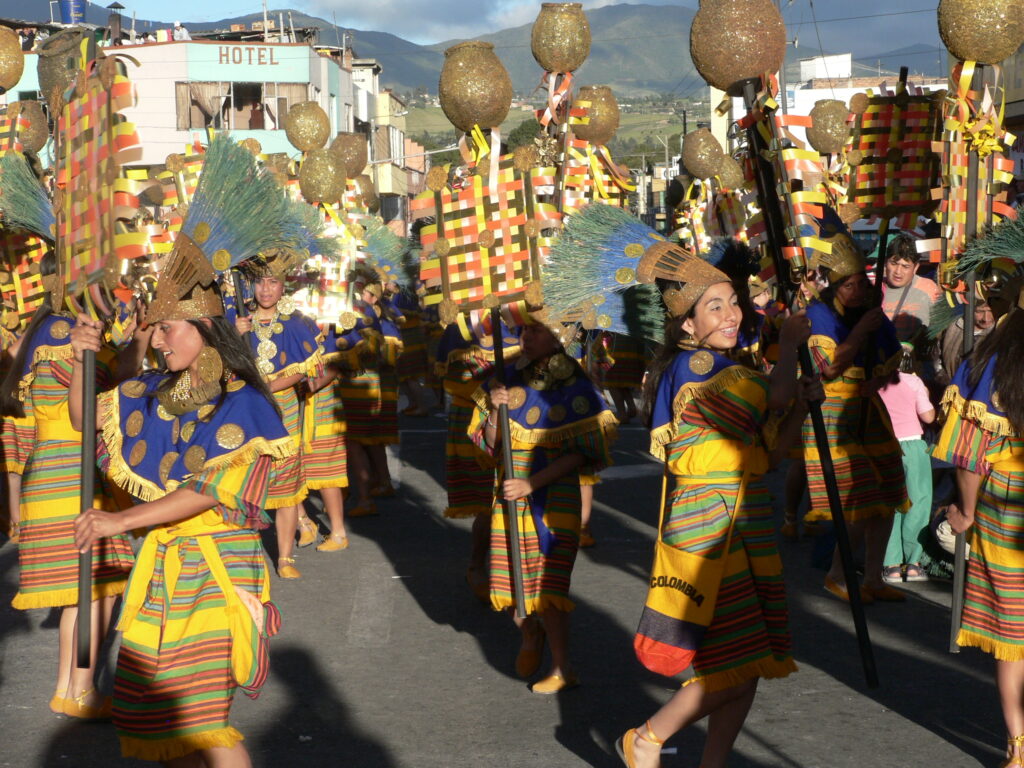
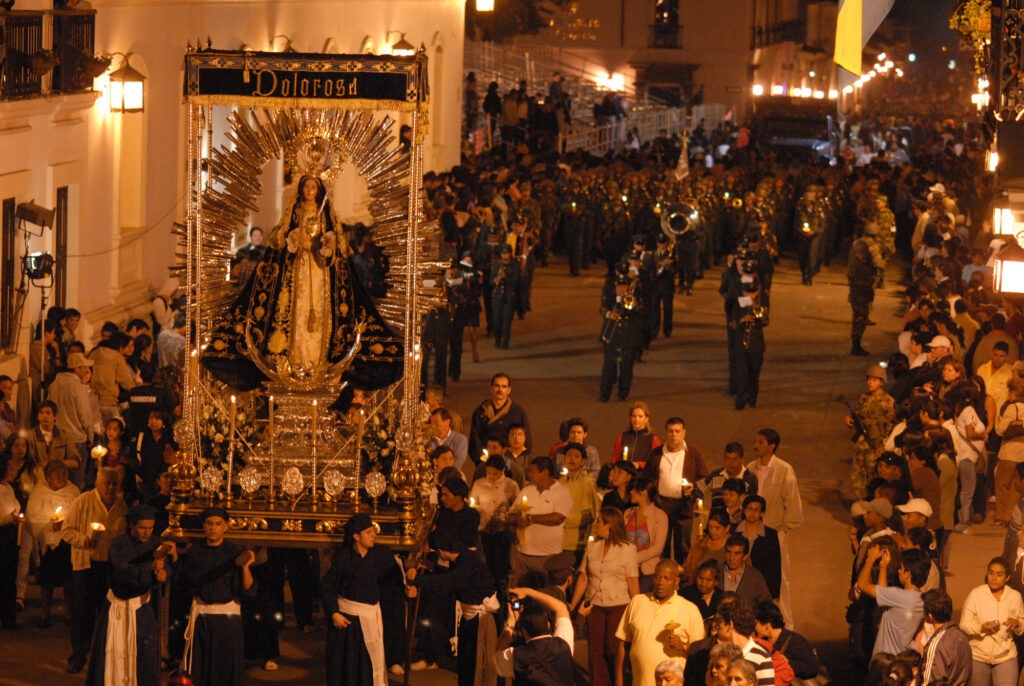
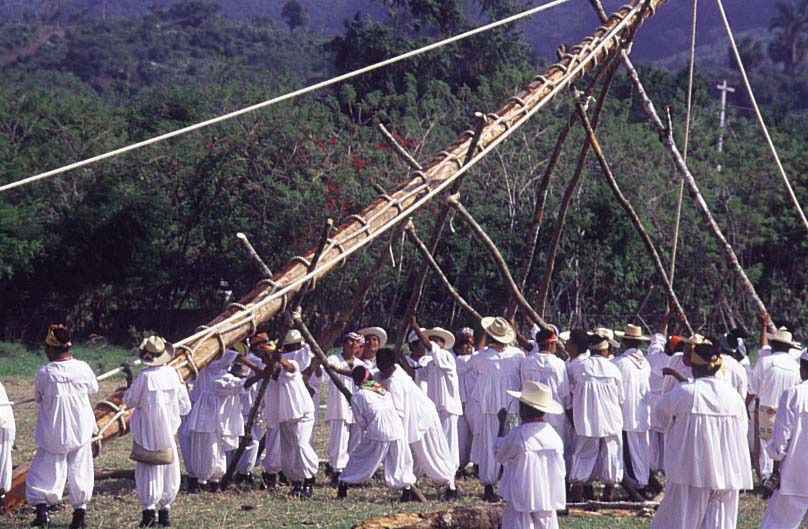
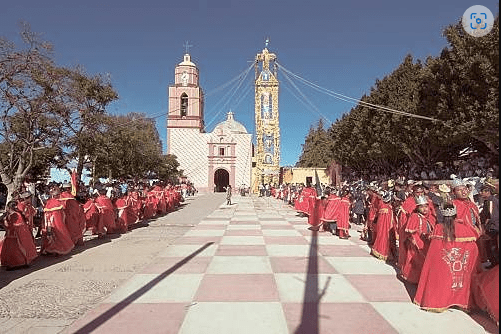
2010
Mexico: Traditional Mexican Cuisine
Recognized for its intricate methods of preparation and the role it plays in community-building, Traditional Mexican Cuisine reflects a harmonious relationship between people and nature. Corn, beans, and chili form the holy trinity of ingredients central to Mexican cuisine.Colombia: Wayuu Normative System
The Wayuu people, an indigenous group in the northern part of Colombia, have maintained their own legal system for centuries. This system promotes conflict resolution through dialogue, with spiritual leaders playing an important role in maintaining harmony within the community.Mexico: Pirekua
A traditional music genre of the Purépecha people in Michoacán, Pirekua is known for its poetic lyrics that express emotions ranging from love to mourning. Its slow tempo and melodic structure have been passed down through generations as a way of preserving their cultural heritage.
- Mexico: Parachicos in the Traditional Festival of Chiapa de Corzo
The traditional festival in Chiapa de Corzo, held annually from January 4 to 23, celebrates three Catholic saints with music, dance, and rituals, particularly honoring Saint Sebastian. The Parachicos dance, performed by masked dancers in colorful attire, serves as a collective offering and fosters mutual respect among the community.
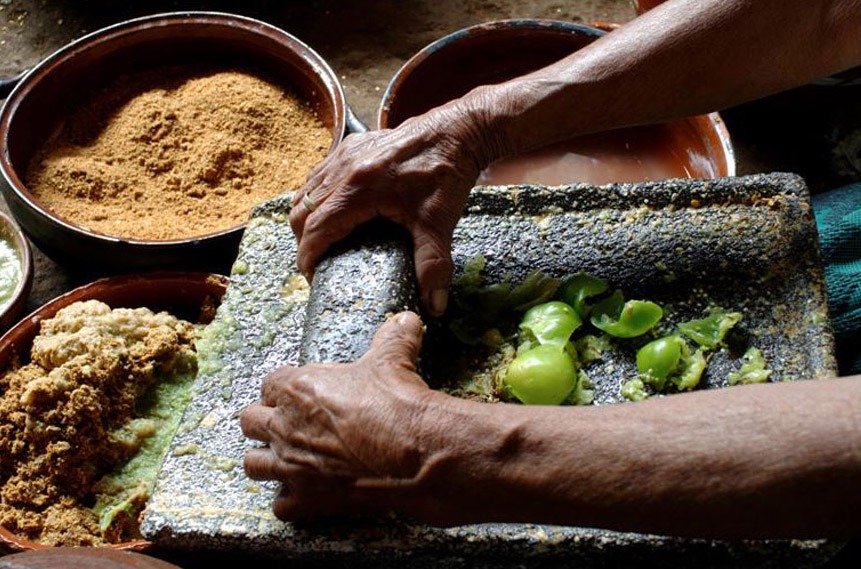
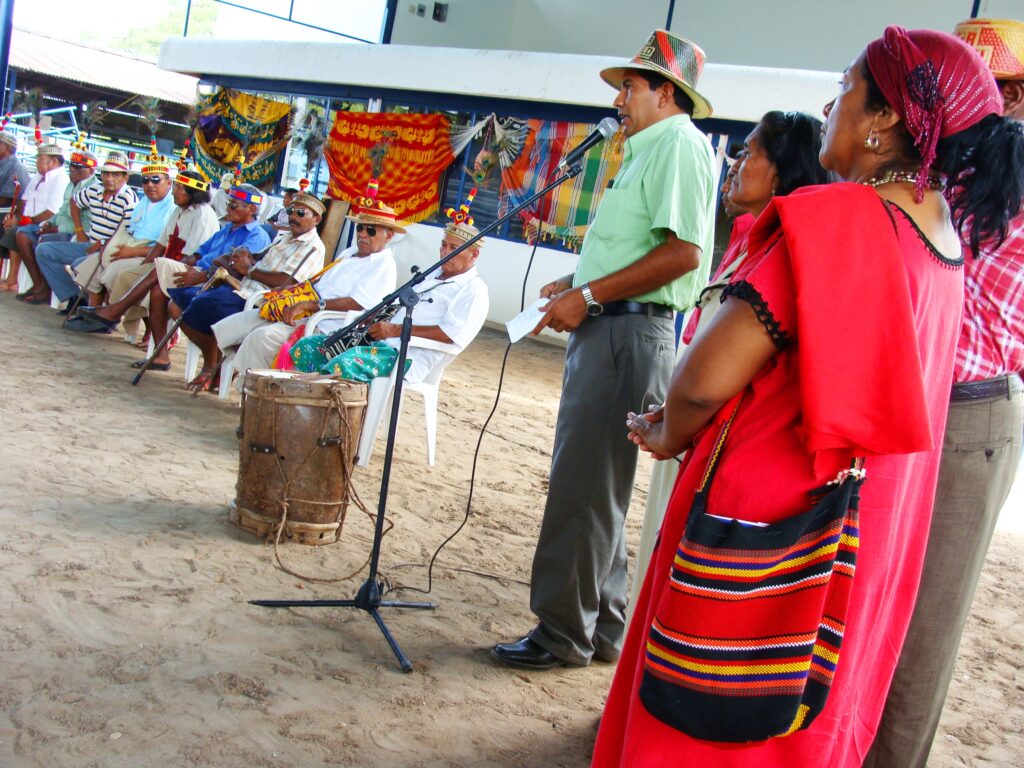

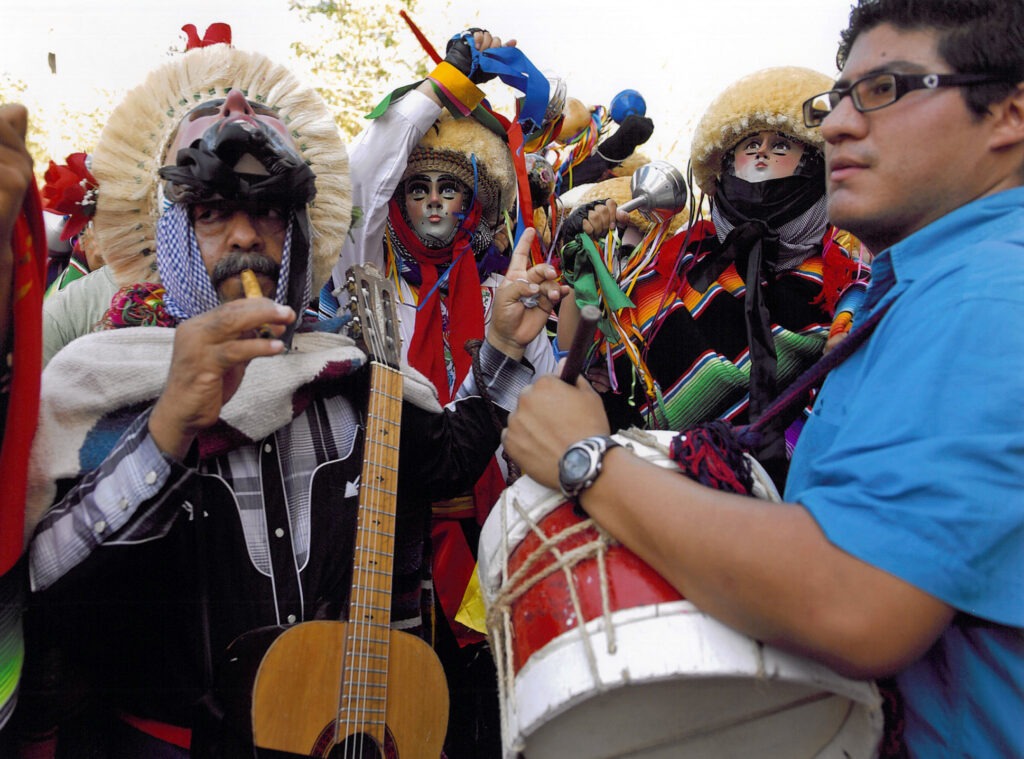
2011
Mexico: Mariachi
One of Mexico’s most recognizable cultural exports, Mariachi music is a blend of Spanish, indigenous, and African elements. It is traditionally performed at celebrations such as weddings, birthdays, and national holidays, with its vibrant rhythms and passionate lyrics captivating audiences worldwide.Colombia: Jaguar Shamans of Yuruparí
The shamans of the Yuruparí communities play a vital role in maintaining the balance between nature and humanity. Their rituals involve music, storytelling, and offerings to the jaguar, a sacred animal representing strength and wisdom.
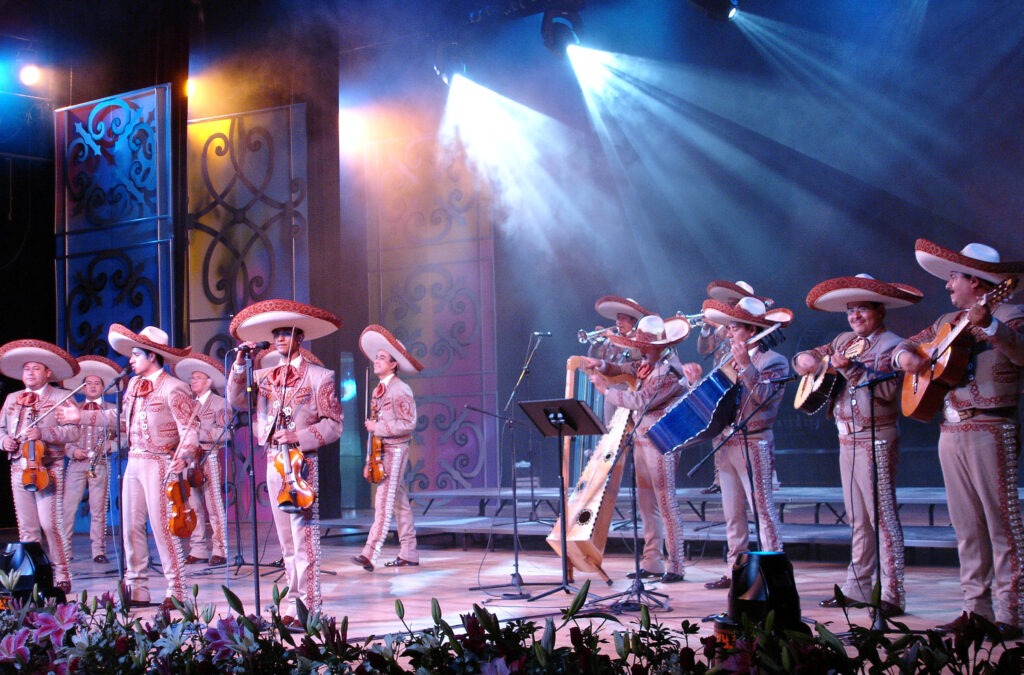
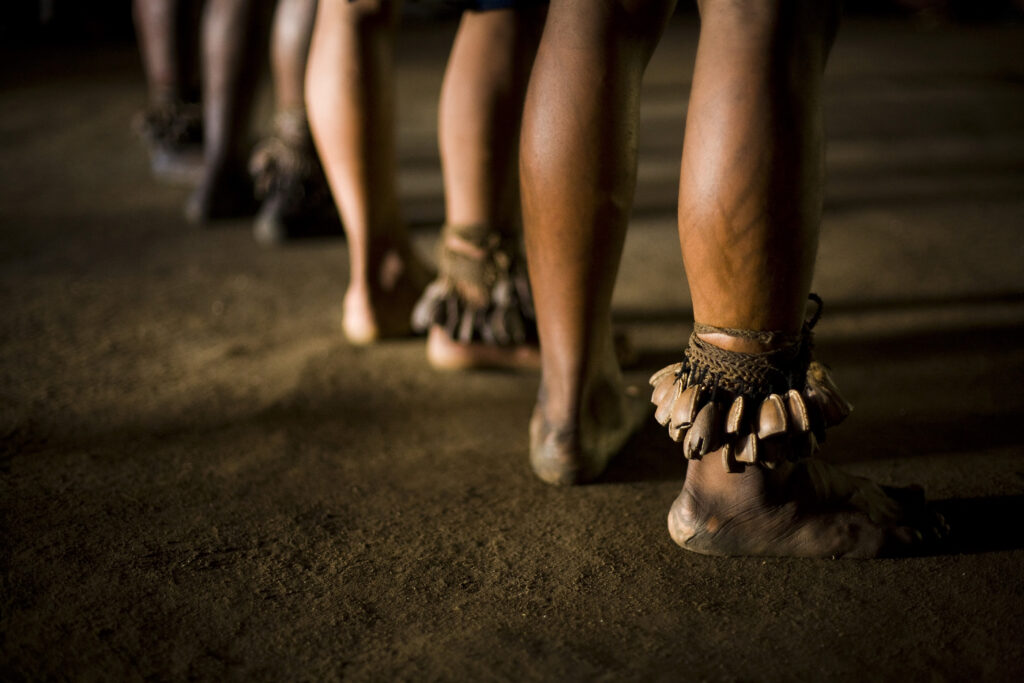
From the rich oral traditions of indigenous groups to the lively rhythms of musical performances, these UNESCO-recognized elements highlight the resilience and creativity of Caribbean cultures. In the next article, we will continue our journey, exploring more fascinating traditions recognized between 2012 and 2015.


































